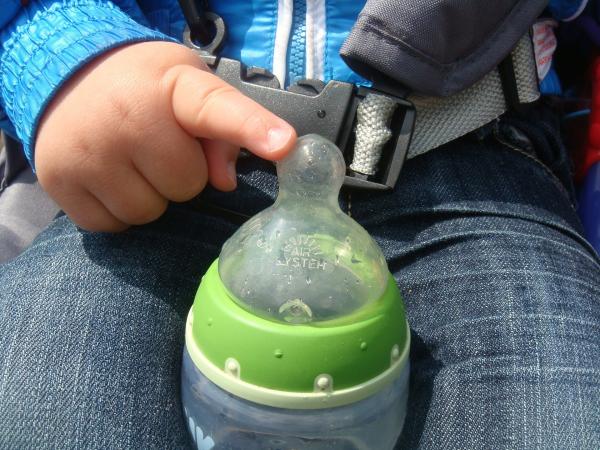The Centers for Disease Control and Prevention (CDC) just released their 2018 breastfeeding report card. It comes on the heels of World Breastfeeding Week when the World Health Organization (WHO) and UNICEF-led Global Breastfeeding Collective published their scorecard (see here).
Just like last year, no country in the world has met the latter group’s idealized metrics for universal, exclusive breastfeeding and the CDC’s goals are on par in also consistently falling short. While the emphasis seems to surround the finding that “only” 25% of infants are exclusively breastfed in the U.S. through six months of age (as recommended by the American Academy of Pediatrics (AAP)), why are we not championing the nearly 60% who are breastfeeding in part or predominantly in full through that same time period?
The lack of global implementation of at all costs breastfeeding campaigns speaks to the fact they do not work. They have failed – here and worldwide. Year-after-year. Instead of doubling down on all breastfeeding all the time policies, the seemingly go-to knee-jerk annual renewal that serves to cling tightly to ideology rather than medical reality, why aren’t we reassessing the bigger picture (e.g. the harms of such a position) and having an honest discussion on the topic?
There seem to be conflicting agendas, viewed through a surprisingly opposing lens of optimism versus pessimism. Those who push breastfeeding-only, even under the most stressful and extreme of circumstances, though well-intended, don’t realize how their message delivers an unnecessary blow to many women who instead hear they are failing having not lived up to this artificial standard. There are a host of factors that influence an infant’s ability to thrive, beyond mere feeding. The overall healthy development of a child is not supported by a solitary and static demand, so why would such a stance - at a time of great medical advances where infant and maternal mortality rates are not nearly what they once were – ever benefit an infant, let alone a mother and an entire family?
The AAP News reports CDC authors of the 2018 Breastfeeding Report Card state
“These rates suggest that mothers may not be getting the support they need from health care providers, family members, and employers to meet their breastfeeding goals.”
Maybe the numbers reflect that mothers are getting the exact support they need. The key word is “their” not the CDC’s or WHO’s breastfeeding goals. For the mother who can’t for biological reasons (e.g. has cancer and is on chemotherapy that would be toxic to a nursing baby), does not wish to breastfeed at all or only ever wanted to for a couple months, why wouldn’t her choice be supported? Or, the mother who suddenly lost a spouse and has multiple children so prefers to supplement every now and then? Where is there room for guaranteeing good mental health and well-being with such rigid mandates?
The conversation around infant feeding requires nuance or it is a dishonest one (see here regarding the politics and U.S. delegation response at the recent World Health Assembly). Many misperceptions abound regarding the subject. For example, the narrative that exclusive breastfeeding and restricting mom's diet will make a mother rapidly lose her pregnancy weight can endanger the baby. Pediatricians routinely encounter infants who are failing to thrive by not gaining weight because this false belief that a starving mother can still always nourish her infant by breastfeeding gets perpetuated. A malnourished mother can make calorie-insufficient milk. For the mother on narcotics for pain or anesthesia after a surgical birth, how is it that breast milk replete with these substances that can depress the respiratory drive of a baby is being marketed as superior to a drug-free bottle of formula? Whether by activists or public health officials, initiatives based on theory not real world considerations can do meaningful harm and must be challenged to include common sense.
A well-nourished infant, mentally and physically, along with the same for his mother and family is a more invaluable individual and societal goal. As a policy measure, ensuring that every single baby born not have even one formula feed in six months after birth ignores the clinical status and comprehensive medical picture of the infant, mother, their family and the limitations of their particular environment. Supporting a woman in breastfeeding, exclusively or in part, should be encouraged. So should supporting a woman who by choice or circumstance does not breastfeed. Our official referendums should foster these targets.



